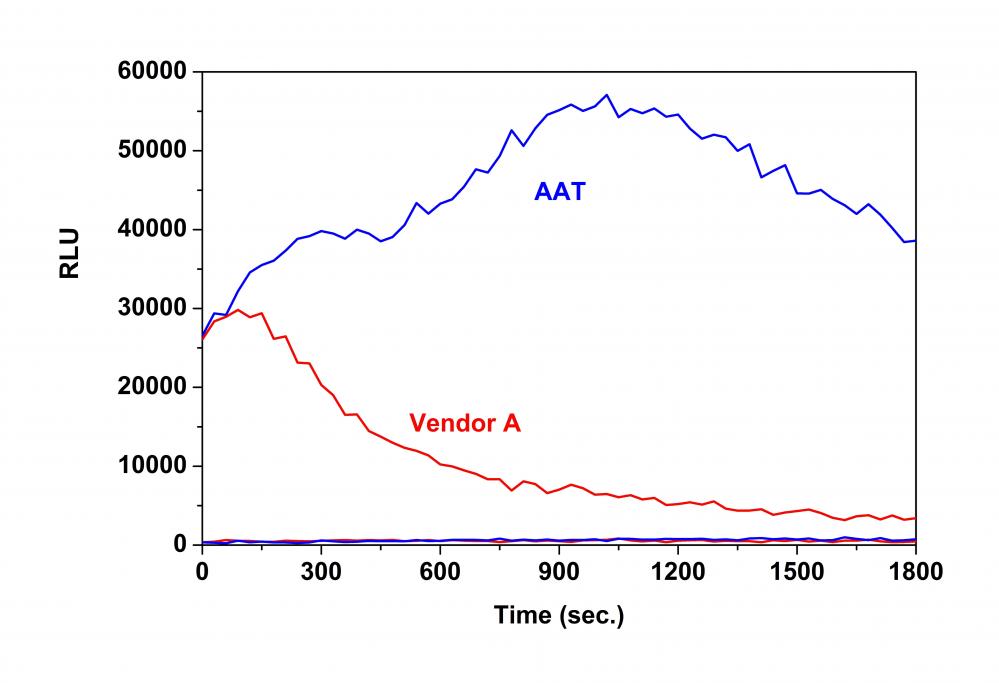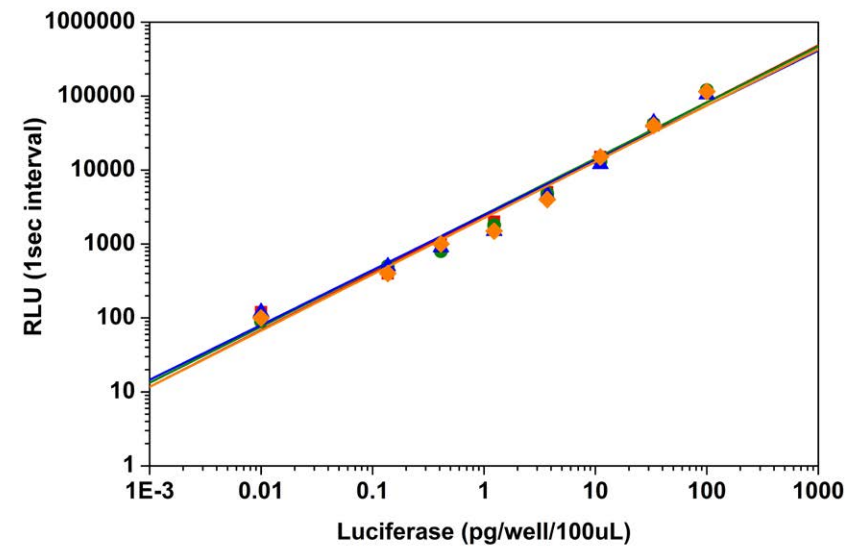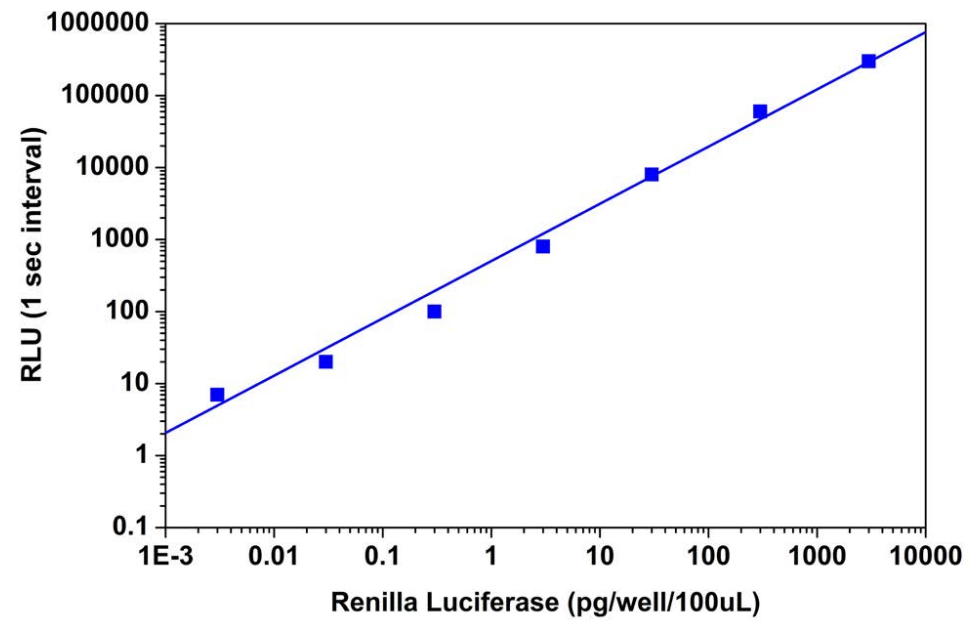Amplite™ Luciferase Reporter Gene Assay
Amplite™ Luciferase Reporter Gene Assay Kits use a proprietary DTT-free formulation to quantify luciferase activity in live cells and cell extracts. The assay is based on firefly luciferase, a monomeric 61 kD enzyme that catalyses a two-step oxidation of luciferin, which yields light at 560 nm. Our formulation generates a luminescent product that gives strong luminescence upon interaction with luciferase. Kits include all the essential components with an optimized “mix-and-read” assay protocol that is compatible with HTS liquid handling instruments. They have high sensitivity and can be used for the assays that require low detection limit. The kits have a fast, simple, and homogeneous bioluminescence assay for studying gene regulation and function. The assay is compatible with the use of standard cell growth media.


